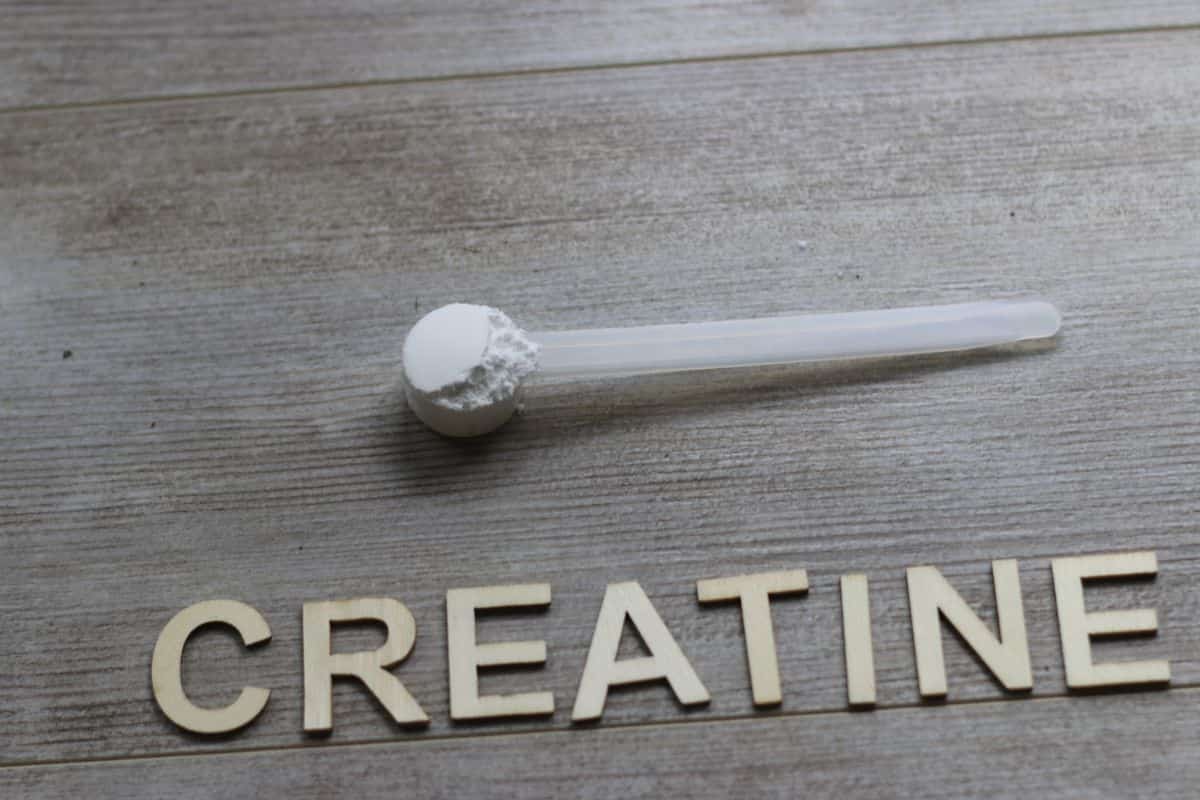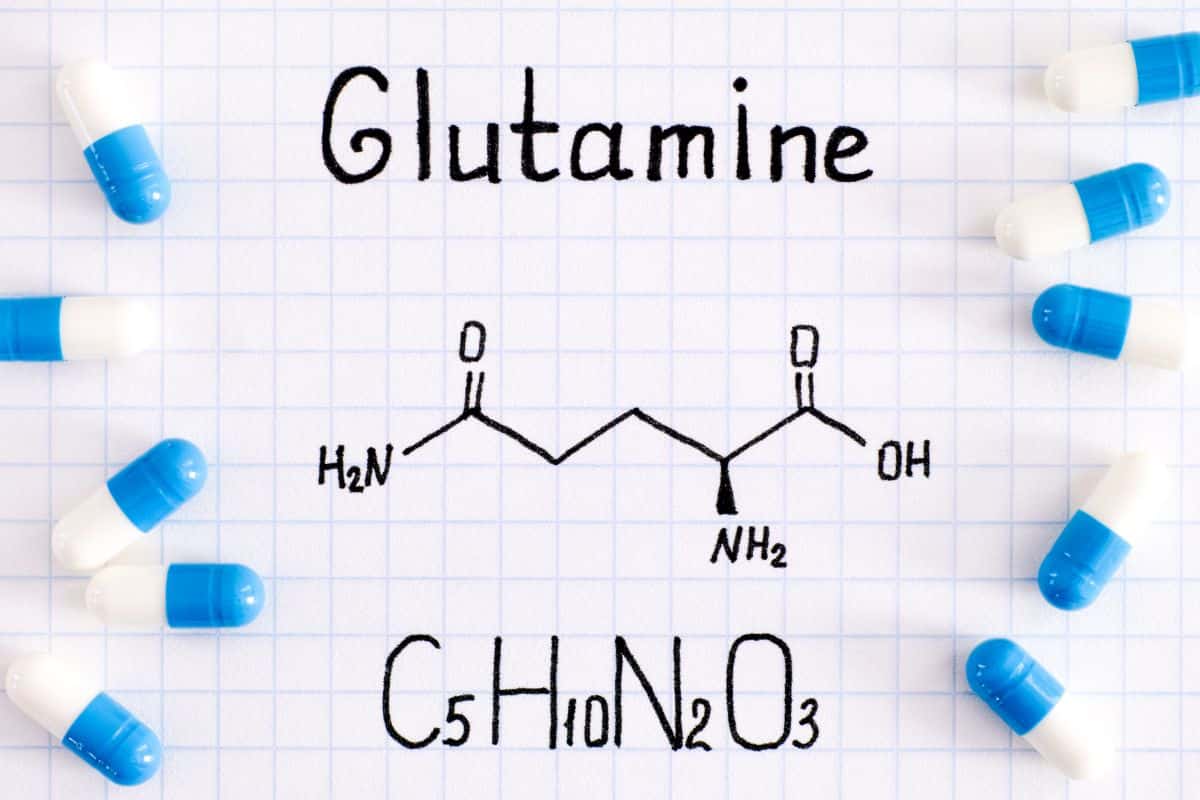What is Creatine?
Creatine is a naturally occurring substance that is produced in our liver, kidneys, and pancreas. It is composed of three amino acids: L-arginine, glycine, and L-methionine.
Approximately 95% of creatine in the body is stored in the skeletal muscles and is used to fuel energy production during physical activities. The other 5% is found in the brain, heart, and other tissues.
Creatine can also be obtained from certain dietary sources. Red meat and fish, particularly herring, salmon, and tuna, are rich in creatine. However, the amounts of creatine in these foods can vary, and cooking can reduce creatine content.
How Does Creatine Work?
To understand how creatine works, we first need to have a general understanding of how our muscles function during physical exercise. When you perform high-intensity, short-duration activities such as resistance training or sprinting, your muscles rely on adenosine triphosphate (ATP) for energy.
When ATP is broken down, it releases energy that provides the muscles with fuel to contract. However, your muscles only store enough ATP for about 10 seconds of high-intensity exercise. After that, they need to start producing more ATP.
This is where creatine comes in. Creatine in your muscles turns into a molecule called creatine phosphate. This molecule can help regenerate ATP, providing a quick source of energy. This process helps your muscles produce more ATP, which can enhance performance during high-intensity exercise.
In simpler terms, think of creatine as a power booster for your muscles. By helping to quickly replenish ATP, creatine allows your muscles to work harder and longer, which can lead to improved performance and increased muscle growth over time.
It's important to note that while creatine can enhance muscle energy production during high intensity exercise, it doesn't have the same effect during low-intensity exercise or activities that last a long time, like long distance running. This is because these types of activities rely more on other energy systems in the body.
The Benefits of Creatine

Creatine is well known for its potential to enhance physical performance, but its benefits extend beyond just boosting your workout. Here's a closer look at some of the key benefits of creatine, backed by scientific research:
- Enhanced Muscle Strength and Size: Creatine is most well-known for its ability to improve high-intensity exercise performance. By increasing the availability of ATP, creatine allows your muscles to perform better during high-intensity workouts. Over time, this can lead to increased muscle strength and size.
- Improved Cognitive Function: While the majority of creatine in the body is stored in the muscles, a small amount is also found in the brain. Some research suggests that creatine supplementation may help improve cognitive function, particularly in tasks that require short-term memory and quick thinking.
- Potential Neuroprotective Properties: Emerging research suggests that creatine may have neuroprotective properties, meaning it could help protect your brain cells from damage. However, more research is needed in this area to fully understand these potential benefits.
- Improved Recovery: Creatine may help improve recovery after intense exercise. It can help replenish ATP stores more quickly, which can reduce muscle fatigue and soreness after a workout.
- Increased Anaerobic Capacity: Creatine can enhance the body's capacity to perform high-intensity, short-duration exercises, like sprinting. This is because these types of exercises rely heavily on the ATP-creatine phosphate energy system, which creatine helps replenish.
It's important to note that while many people can benefit from creatine supplementation, the extent of these benefits can vary from person to person. Factors such as diet, exercise routine, and individual metabolism can all influence how much someone might benefit from creatine.
Remember, while creatine is a powerful bodybuilding supplement, it's just one piece of the puzzle. A balanced diet, regular exercise, and adequate rest are all important for optimal health and performance.
When Should You Take Creatine?
The timing of creatine supplementation can be a point of confusion for many people. While there's no definitive answer that suits everyone, most research suggests that it's beneficial to take creatine close to your workout.
There are two schools of thought when it comes to creatine timing: pre-workout and post-workout.
- Pre-Workout: Some fitness enthusiasts prefer to take creatine before a workout. The idea here is that creatine will be available and ready to help produce ATP during your workout, potentially enhancing your performance.
- Post-Workout: Others prefer to take creatine after a workout. This is based on the idea that your muscles are particularly receptive to nutrients post-workout due to an increase in blood flow. Taking creatine at this time might help replenish creatine stores in your muscles more effectively.
While both pre-workout and post-workout supplementation have their benefits, research has not definitively shown one to be superior to the other. In fact, a study published in the Journal of the International Society of Sports Nutrition found no significant differences in body composition or strength performance between pre-workout and post-workout creatine supplementation.
What's most important is consistency. Creatine works by saturating your muscle cells over time, so it's crucial to take it regularly. Whether you choose to take it before or after your workout, aim to take your creatine at the same time each day.
Remember, everyone's body responds differently to supplements, and what works best for one person might not work as well for another. It's always a good idea to experiment with different timings and see what works best for you.
Does Creatine Affect Sleep?

Sleep is a crucial part of our overall health and well-being, and it's natural to wonder if taking a supplement like creatine could have an impact on your sleep quality or duration. However, the relationship between creatine and sleep is not yet fully understood, and research in this area is somewhat limited.
Creatine is primarily known for its effects on muscle energy production, and it's not typically associated with sleep regulation. That being said, creatine does have a small presence in the brain, and some research suggests it could potentially influence brain function.
While some anecdotal reports suggest that creatine could cause restlessness or difficulty sleeping, these side effects are not commonly reported in the scientific literature. In fact, a study published in the Journal of Clinical Sleep Medicine found that creatine supplementation did not significantly affect sleep in healthy young adults.
Also, keep in mind that many factors can influence sleep, including diet, exercise, stress levels, and overall health. If you're having trouble sleeping, it's worth talking to a healthcare provider to explore potential causes and solutions.
Should I Take Creatine Every Day?
Most research suggests that daily creatine supplementation can be beneficial for enhancing athletic performance and muscle strength. By taking creatine every day, you can ensure that your muscles have a sufficient supply of phosphocreatine to produce ATP, which can help enhance your performance during workouts.
A common approach to creatine supplementation is known as "loading." This involves taking a high dose of creatine (typically around 20 grams per day) for 5-7 days, followed by a maintenance dose of 3-5 grams per day. This approach is designed to rapidly increase the stores of phosphocreatine in your muscles.
However, research has shown that you can also increase your muscle creatine stores by taking a lower dose of creatine (3-5 grams) every day over a longer period (3-4 weeks). This approach may be more suitable for those who experience gastrointestinal discomfort with high doses of creatine.
Is Creatine Good for Fat Loss?

While creatine isn't a weight loss supplement in the traditional sense, it can indirectly support your fat loss efforts in a few ways. Creatine helps your muscles produce more energy during high-intensity exercise. This can lead to improved performance in your workouts, allowing you to work harder and for longer periods, which can result in a higher calorie burn.
Moreover, by helping to increase muscle size and strength, creatine can help raise your resting metabolic rate. This is because muscle tissue burns more calories at rest than fat tissue. Therefore, by increasing your muscle mass, you can burn more calories throughout the day, even when you're not exercising.
However, it's important to note that creatine itself does not burn fat. Any fat loss benefits associated with creatine are indirect and result from its ability to improve your performance during high-intensity workouts and increase your muscle mass.
It's also worth noting that creatine can cause water retention, which can lead to an increase in body weight. This is typically temporary and not related to increased fat mass. As such, while the scale might go up when you start taking creatine, this doesn't necessarily mean you're gaining fat.
How Much Creatine is Safe for Kidneys?
The primary concern arises from the fact that creatine is metabolised into creatinine, a substance that is often used as a marker for kidney function. Elevated levels of creatinine are typically associated with impaired kidney function, leading some to worry that creatine supplementation could harm the kidneys.
However, research has largely debunked this concern. Studies have shown that while creatine supplementation can increase creatinine levels, this does not indicate kidney damage. Instead, it's simply a result of increased creatine metabolism.
For instance, a study published in the Journal of the International Society of Sports Nutrition in 2017 found that long-term creatine supplementation in healthy individuals did not show any harmful effects on the kidneys. The study involved individuals who had been supplementing with creatine for up to 21 years and found no evidence of detrimental effects on kidney function.
That said, individuals with pre-existing kidney conditions should exercise caution. If you have a kidney disorder, or if your family has a history of kidney disease, it's recommended that you consult with a healthcare professional before starting a creatine supplement regimen.
Is Creatine a Steroid?
One common misconception about creatine is that it's a steroid. This is not true. Creatine and steroids are fundamentally different substances with different effects on the body.
Steroids, specifically anabolic steroids, are synthetic substances similar to the male hormone testosterone. They are often used illegally to increase muscle mass and improve athletic performance. Anabolic steroids can have serious side effects, including heart disease, liver damage, and severe mood swings.
Unlike anabolic steroids, creatine is not a hormone. It does not alter your body's hormone levels or have the same side effects as steroids. Creatine is considered safe for long-term use, and it's legal in most places, including professional sports.
Is Creatine Safe?
The safety of creatine supplementation has been a topic of extensive research. The consensus among health and fitness professionals is that, when used correctly, creatine is generally safe for most people.
Most of the concerns about the safety of creatine supplementation revolve around kidney damage, dehydration, and cramping. However, these concerns are largely unfounded.
Dehydration and cramping are often cited as potential side effects of creatine supplementation. However, these side effects are not supported by scientific evidence. In fact, creatine might help with hydration status because it pulls water into your muscle cells, which may reduce cramping and dehydration in intense workouts.
It's important to note that while creatine is generally safe for most people, it's always a good idea to talk to your doctor or a dietitian before starting any new supplement regimen, especially if you have any pre-existing medical conditions or are taking any other medications.
In conclusion, creatine is a well-researched supplement that is widely considered safe for most people. It can be a powerful tool for enhancing athletic performance, particularly in high-intensity, short-duration exercises. As with any supplement, it's important to use it responsibly and under the guidance of a healthcare professional.











